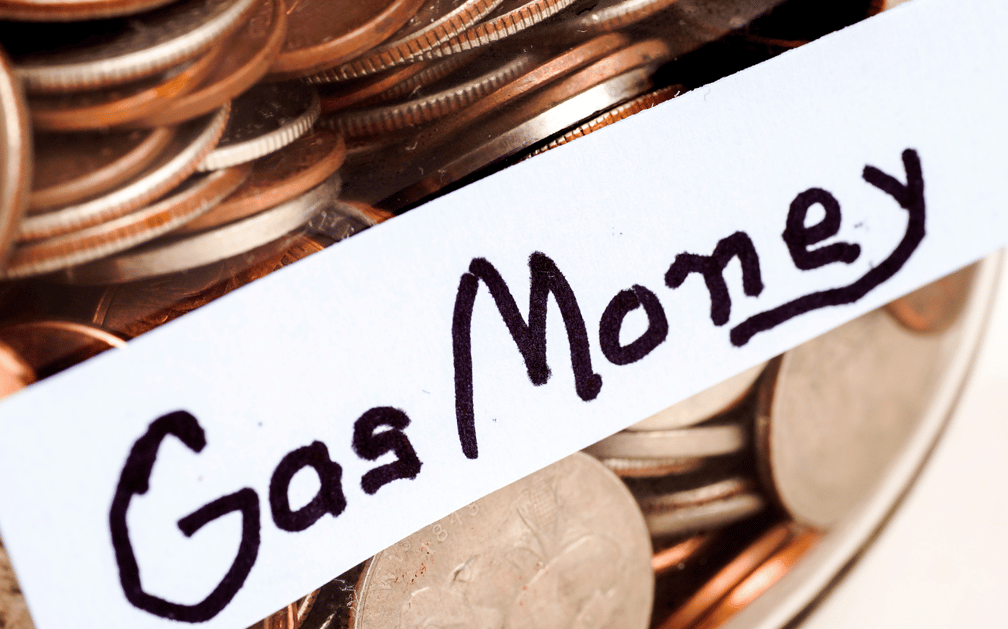Don’t Let Rising Gas Prices Drag You Down
Don’t Let Rising Gas Prices Drag You Down. How to Budget to Beat the Economic Blues.
Mark lived through the high inflation and gas crisis back in the 1970s and felt lucky to have stayed in his house, put food on the table and send his kids to college.
During his prime earning years, he maintained that life was short. You do what you can to get by and enjoy as much of it as you can while you do it. He didn’t really think about tomorrow. He was too focused on getting through his day with as much joy as possible.
Now he’s living with his kids.
According to a MarketWatch report, 56% of Americans live paycheck to paycheck, including those making six figures. Gas prices currently hover around $5 per gallon and inflation recently rose to 8%.
Scary, right? Now is as good a time as any to learn how to create a budget and stick to it—no matter what.
If you balk at living with a budget, think about living out your golden years surrounded by the noise, sticky surfaces, and general stinkiness your grandkids will create every single day of those years. Like Mark does.
How to Set a Budget
Budgets allow you to see in black and white where your money is going and helps you steer your financial ship to keep it away from the rocks.
Here are a couple of steps to help you build your ark:
- Set your budget at the beginning of each month.
Budget using the income you will actually receive, not what you’re hoping to receive.
Make budgeting a family affair that everyone invests in. Everybody benefits from a financially healthy home. No one benefits from a rogue spender.
Know that you can always adjust your budget every couple of months. If one line item consistently comes in lower than expected, put the remainder in another category—preferably savings, but a line item for vacations or holiday gifts is also an option. - Determine what’s a fixed expense and what’s a variable expense. A fixed expense like a mortgage or car payment is self-explanatory. A good tip for establishing a variable amount is to take the average you spent on the variable for three months and set that amount as the line-item figure.
- Place needs ahead of wants.
Savings should always come first. Take 20% of your monthly income and put it in savings.Essentials that affect your physical and financial wellbeing should take up 50% of your monthly income. A useful list in order of priority includes:
- Savings (there it is again)
- Food
- Rent
- Utilities
- Credit card and loan payments
- Car payment
- Gas (Yep, car stuff is at the bottom. It’s an essential, but not at the top when you consider you can bike, use public transportation or ride share to work.)
Non-essentials like restaurants, streaming services, and that $4 Starbucks that enhance your lifestyle should take up the remaining 30%. Non-essentials are essential. If there’s something you really want, figure out how much of your essentials budget you’re willing to save and then figure out how many days or weeks it will take to buy it.
Saving tips:
- Once you’ve paid off your credit cards, you can allocate that money to accommodate any rising costs in essentials or put it into savings.
- Make it a goal to build up three to six months of savings to cover your expenses in case of emergencies.
- If you have direct deposit, steer some of your paycheck directly into a savings account. And devote part of that savings to a retirement savings plan.
How to Fight Rising Gas Prices
The best thing you can do for your wallet besides dusting off your bicycle or hopping the bus to work is to make your car as efficient as possible. Some things to do to decrease the things that make it work harder:
- Change the air filters.
- Keep your tires road ready. Proper tire pressure can save up to thirteen cents per gallon.
- Don’t idle. If you know you’re not going anywhere for a while, turn off your car.
- Same for parking. Turn it off.
- Turn off the AC and open your windows.
- Take off your racks and carriers. They create wind resistance that strains your engine, thus requiring more gas.
- Clean out your car to lighten the weight your car’s carrying.
- Combine errands into one trip.
- Slow your roll. Adhere to the speed limit and accelerate slowly.
Invest in Your Future and Protect Your Family
With the world in not only financial turmoil but suffering increasing episodes of violence, it may be time to reframe your life insurance choices. Specifically, a permanent life policy that accrues cash value as well as provides a death benefit should the worst happen.
If you currently have a term life policy, consider converting it. This will not only build wealth but will save you from having to submit to a medical exam—an extra bonus if you’re starting to notice your health changing as you get older.
Mark would have benefited from these tips if he’d had them and heeded them. But he didn’t. And now he’s trying to make the best of things while he helps his daughter-in-law change diapers and fold towels.
Best of luck, Mark.






